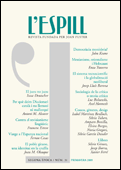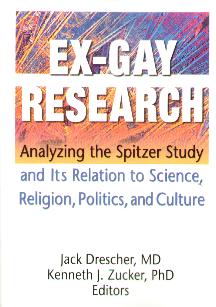 Officer Dani Lee Harris is first intersex person to lead Pride parade
Officer Dani Lee Harris is first intersex person to lead Pride paradeAS A GRAND MARSHAL of this year’s Atlanta Pride parade, Officer Dani Lee Harris, the LGBT liaison for the Atlanta Police Department, plans to wear her uniform proudly despite the controversy surrounding the APD’s recent raid of the Atlanta Eagle, a gay bar.
“I do understand why there’s controversy, but I wish people would give Atlanta Pride a break,” Harris said. “A lot of truths will come out [of the ongoing internal investigation of the raid] and as a member of the GLBTQI community I don’t want this to mess up the event.”
Harris was not involved in the Sept. 10 raid and didn’t learn about it until contacted by the media the morning after it occurred. The outcry from LGBT citizens that followed forced Chief Richard Pennington and top brass of the APD to hold a police conference where Pennington acknowledged Harris should have been involved in the investigation of the gay bar from the beginning. But all that is over for right now, Harris said, and now is the time for the community to come together.
“How hypocritical can we be at times?” she said. “We get upset because of people stereotyping us and I feel the same when I’m in blue. For everyone to take all the good officers and clump them in with the bad, that’s discrimination. They’re looking at the uniform and not the individual.”
Harris, the first intersex grand marshal of an Atlanta Pride parade, said fellow LGBT people asked her not to wear her uniform in the parade.
“I was not part of what happened [at the Eagle],” she said. “I’m wearing my uniform proudly and I’m representing all the good officers. I refuse to not be who I am.”
The Atlanta Pride Committee announced Harris and Rev. Chris Glaser as this year’s two grand marshals in a press statement released Sept. 22, not quite two weeks after the raid. The decision was met by outrage from some LGBT people, and allies, who felt it was inappropriate to honor an APD officer in the wake of the raid.
The backlash then forced the Atlanta Pride Committee to issue an open letter to the community, defending its selection of Harris. Harris was one of two nominees, explained J. Sheffield, events manager for Pride. The decision was made before the raid, and to take back the honor was simply not an option, he said.
“This is a tough one for us,” Sheffield told SoVo in September. “She did not do anything to warrant us taking the honor away from her. We selected her because of her contribution to the community and we need to honor that.”
HARRIS GREW UP IN SPANISH HARLEM in an abusive household, shuffled between foster homes and nearly killed when shot in the face a decade ago. Her mother, who suffered from lupus and numerous other medical issues, spent much of her time in the hospital. She died at the age of 40 when Harris was 17, forcing Harris and her older sister to raise their younger siblings.
“We were literally dirt poor. I remember eating oatmeal cookies for dinner,” Harris said.
Harris overcame all of these hardships and built a career with the APD, but faced an internal struggle nobody knew about — one she never understood until last year. During puberty, she began growing facial and chest hair. She never had a regular menstrual cycle. Emotionally, she said, she had a rage that couldn’t be controlled.
Numerous medical later revealed Harris’ testosterone levels were much higher than the range for even the average male. At first, the doctor worried Harris may have brain tumors because her testosterone levels were so high. Harris then began months of medical testing with an endocrinologist that eventually concluded with a chromosome test that revealed Harris had the XY chromosome — the male chromosome. But she also had female reproductive anatomy. The diagnosis was that she is intersex.
For Harris, who continues to identify as female but legally changed her name from Darlene to Dani Lee, a more gender-neutral name, finding out she is a male genetically felt like a heavy burden being lifted from her shoulders. Finally, she had an explanation for why she felt so different from everyone else, even sometimes within the queer community.
There are numerous variations to being intersex. Curtis Hinkle, who founded Organization Intersex International six years ago, said at last count he understood there were approximately 80 variations of being intersex, some extremely rare. Because there are so many variations, it is difficult to determine how common it is ...




















